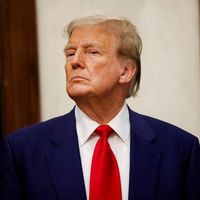Iran Sounds Cautiously Optimistic Over New Talks With US
Iran said Monday that Washington has given assurances it will carry out the 2015 nuclear deal and UN resolution 2231 and will “consider” Iran’s economic benefits.
Iran agreed on Saturday [June 25] to resume nuclear talks with the United States after the European Union’s foreign policy chief Josep Borrell visited Tehran and held talks to restart stalled nuclear negotiations.
Foreign ministry spokesman Saeed Khatibzadeh speaking at his weekly media briefing thanked Borrell and said, “We confirm that there have been agreements regarding the format, essence and topics” for the new round of talks. “The most important aspect of the talks was that America has given assurances to act based on the entirety of the JCPOA and issues covered by resolution 2231, taking into account Iran’s [expected] economic benefits” from a renewed nuclear agreement.
Khatibzadeh also seemed to hedge Iran’s bets, saying, “We must wait and see if the Americans will part with Trump’s legacy and Borrell’s messages become a reality. We will continue the talks with seriousness and decisiveness with the caveat of not fully trusting America.”
Year-long talks in Vienna came to a sudden halt in March after diplomats said that a draft agreement was 99 percent ready to restore the Joint Comprehensive Plan of Action (JCPOA). The sticking points apparently revolved around Iran’s demand that the US should lift all sanctions imposed by former President Donald Trump when he withdrew from the deal in 2018.
However, many sanctions, including the designation of Iran’s Revolutionary Guard (IRGC) as a terrorist organization were not directly related to Iran’s nuclear program and the Biden Administration has so far not accepted Tehran’s demands.
Lately, Tehran has reportedly argued that the demand to remove sanctions related to terrorism is because they would prevent full economic benefits for Iran even if the nuclear deal is restored. Khatibzadeh’s statement that the US has accepted to consider Iran’s “economic benefits” points to Tehran accepting a promise from Washington, rather than a formal removal of all sanctions.
Some observers in Iran have suggested that perhaps the issue of remaining sanctions and other differences will be dealt with after the JCPOA is restored through additional talks.
Iran’s regional aggressive behavior and its missile threat are long-standing problems that the United States and its regional allies are keen to address. The lifting of terrorism and other sanctions could evolve into a new round of talks aimed at Iran’s overall foreign and military policies.
The new talks Borrell agreed with the Iranians seem indeed to differ from the Vienna format. The talks, which Khatobzadeh said will start in a few days, are slated to take place not in Vienna but in a Persian Gulf country, most likely Qatar.
Although many details are still unclear, the talks will not take place with the direct participation of Russia and China as was the case in Vienna. It is not clear if the United Kingdom, France and Germany, as European signatories of the JCPOA will be present or only the EU will mediate in what would be indirect talks, as Iran still refuses to negotiate with the US face to face.







